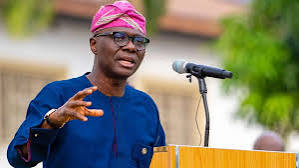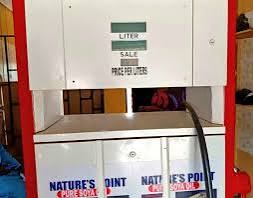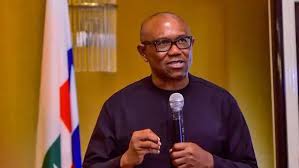The Federal Government has disclosed that the governments of Olusegun Obasanjo; late Umar Musa Yar’Adua ; Dr Goodluck Jonathan and the current government of Muhamamdu Buhari have spent N13 trillion on fuel subsidy.
While Obasanjo was president between 1999-2007, late Yar’Adua took over from 2007-2010 when he died and succeeded by his deputy, Goodluck Jonathan who handed over to Buhari in 2015 till date .
The Secretary to the Government of the Federation (SGF), Mr Boss Mustapha said fuel subsidy payouts for 16 years (from 2005-2021), cost the Federal Government a whopping N13 trillion on a conservative estimate.
Mustapha, who quoted the policy advisory of the Nigerian Extractive Industries Transparency Initiative (NEITI), noted that the figure in relative terms is equivalent to Nigeria’s entire budget for health, education, agriculture and defence in the last five years, and almost the capital expenditure for 10 years between 2011-2020.
The NEITI advisory also disclosed that N1.5 trillion in form of royalties and taxes owed the government by firms operating in the extractive industry ecosystem has been recovered, while N1.07 trillion (US$2.67 billion) is still outstanding.
The SGF stated these during his visit to NEITI’s permanent office and the launch of its five-year strategic plan (2022-2026).
According to him, the Presidential Transition Council (PTC), which he currently heads was already fine-tuning modalities on how best to manage the subsidy removal discomfort, to determine the best ways to approach the thorny issue.
He said the figure could have been higher if other economic and opportunity costs to the nation were computed and built into the expenditures.
He said “these include the slashing of allocations for the health, education, and technology infrastructure sectors; deterioration of the downstream sector with the declining performance of Nigeria’s refineries, a discentivised private sector investment in the down and mid-stream petroleum sector; low employment generation since the refining process is done outside the shores of Nigeria and inefficient supply arrangements which often lead to scarcity and its attendant queues among other challenges.”
The SGF added that the Federal Government was also following the debates around subsidy removal by the citizens, some of which include the need to fix the ailing refineries and the creation of visible safety net programmes to reduce the impact on the poor and vulnerable in the society, especially workers.
“There is also the strong argument on adequate mechanisms to be put in place to ensure that the revenues that will be accruing from the subsidy removal are prudently managed and channeled to the development of key infrastructure and other areas of national development.
“Let me use this opportunity to re-assure Nigerians that the Federal Government has followed these conversations with keen interest having borne the burden of fuel subsidy over these years. While we remain open to the ongoing debate, a comprehensive position to guide the incoming administration on when and how to make this decision is being developed by the Presidential Transition Council which I currently head”, he explained.
Do you want to share a story with us? Do you want to advertise with us? Do you need publicity for a product, service, or event? Contact us on WhatsApp +2348183319097 Email: platformtimes@gmail.com








